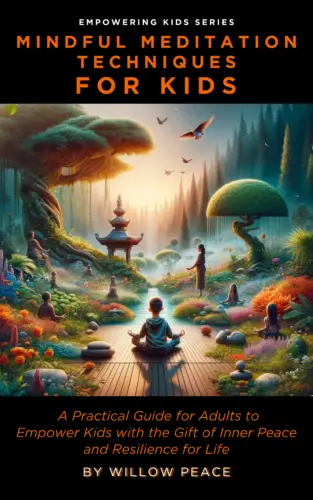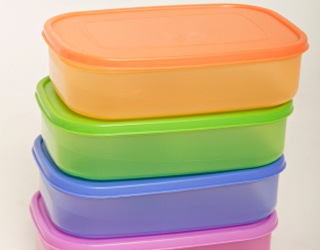Staff Writer for Wake Up World
Plastics are everywhere—from the packaging that wraps our food to the gadgets we use daily. Yet hidden within these materials are chemicals that could pose a serious threat to our health. Research has revealed that exposure to plastic-associated chemicals, such as microplastics, phthalates, and bisphenols, is linked to various health issues.
This article examines the findings of a recent umbrella review that assessed multiple studies on the impact of plastics and their associated chemicals on human health. We’ll also provide some practical tips on how to minimize your exposure to these harmful substances.
The Scope of Plastic’s Impact on Health
A comprehensive review of 52 systematic studies found that exposure to chemicals present in plastics is associated with adverse health outcomes across numerous domains, including reproductive health, neurodevelopment, cardiovascular conditions, and even cancer.
“Exposure to plastic-associated chemicals is associated with adverse outcomes across a wide range of human health domains, and every plastic-associated chemical group is associated with at least one adverse health outcome.”
The chemicals investigated include bisphenols (like BPA), phthalates, polychlorinated biphenyls (PCBs), and polybrominated diphenyl ethers (PBDEs), among others. These substances are prevalent in everyday items such as plastic bottles, food containers, and personal care products, making it difficult to avoid them entirely.
Bisphenol A (BPA): A Hormone Disruptor
Bisphenol A (BPA) is one of the most notorious plastic-associated chemicals. Found in items like water bottles and food can linings, BPA is linked to several significant health issues:
- Decreased anoclitoral distance in infants
- Type 2 diabetes in adults
- Hypertension in both children and adults
- Cardiovascular disease (CVD)
Although efforts have been made to reduce BPA use, its presence in many consumer products remains a concern.
Phthalates: Affecting Reproduction and Child Development
Phthalates are commonly used as plasticizers to make plastics more flexible, but they have alarming health associations. According to the review, phthalate exposure is connected to:
- Spontaneous pregnancy loss
- Reduced sperm quality
- Asthma in children and adults
- Adverse cognitive development in children, including IQ loss and fine motor skill impairment
Moreover, phthalates are also linked to conditions such as insulin resistance, polycystic ovary syndrome (PCOS), and even precocious puberty in young girls.
“Phthalates… are associated with spontaneous pregnancy loss, insulin resistance in children and adults, adverse cognitive development and intelligence quotient (IQ) loss.”
Flame Retardants and PFAS: Long-Term Health Risks
Flame retardants like PBDEs, often found in electronics and furniture, have been shown to affect children’s cognitive development, leading to IQ loss and even behavioral issues like ADHD in girls. PFAS, a class of chemicals used in non-stick cookware and water-resistant fabrics, are linked to:
- Increased body mass index (BMI) and obesity in children
- Attention deficit hyperactivity disorder (ADHD) in girls
- Changes in thyroid function
Cancer Risks and Immune Disorders
The review also highlights that exposure to PCBs and other plastic-associated chemicals can increase the risk of developing certain types of cancer, such as non-Hodgkin’s lymphoma and breast cancer. Additionally, PCBs are associated with a higher incidence of cardiovascular diseases and immune system disorders.
What Can You Do? Practical Tips to Reduce Exposure
While the health risks associated with plastics are alarming, there are steps you can take to reduce your exposure to these harmful chemicals. Here are some simple yet effective strategies:
1. Choose BPA-Free Products
Many products are now advertised as “BPA-free.” While selecting these options is important, remember that BPA replacements (such as BPS) may also pose risks, so minimize plastic use whenever possible.
2. Avoid Plastic Food Containers and Bottles
Switch to glass or stainless steel containers for storing food and drinks. Heating plastic can cause more chemicals to leach into your food, so avoid microwaving plastic containers.
3. Filter Your Drinking Water
Microplastics and PFAS can often be found in tap water. Use a water filter that explicitly removes these particles to safeguard your health.
4. Reduce Use of Non-Stick Cookware
Non-stick pans are convenient but often contain PFAS, which can leach into food. Opt for ceramic, cast iron, or stainless steel cookware instead.
5. Minimize Use of Personal Care Products with Phthalates
Many personal care items, such as shampoos, lotions, and perfumes, contain phthalates. Look for “phthalate-free” products to reduce exposure.
6. Be Cautious with Electronics and Furniture
Furniture and electronics often contain flame retardants like PBDEs. Choose products labeled as “PBDE-free” or opt for organic, untreated materials whenever possible.
Final Thoughts
As the research shows, the potential health risks from exposure to plastic-associated chemicals are vast and wide-ranging. While avoiding plastic entirely might be impossible in today’s world, making conscious decisions about the products you use can significantly reduce your risk.
“We recommend that improved independent, systematic hazard testing for all plastic-associated chemicals is undertaken before market release of products.”
Until such regulatory changes are implemented, it’s up to us as individuals to take steps to protect our health. By being aware of these hidden dangers and taking proactive measures, we can reduce our exposure to these harmful chemicals and promote a healthier lifestyle for ourselves and future generations.
Journal Reference
An Umbrella Review of Meta-Analyses Evaluating Associations between Human Health and Exposure to Major Classes of Plastic-Associated Chemicals – DOI: 10.5334/aogh.4459
About the author:
John Patterson is an avid writer and researcher who delves into the latest scientific research. With an insatiable curiosity, he translates complex concepts into accessible narratives, allowing readers to embark on a journey of discovery. John bridges the gap between experts and the public through his work, igniting curiosity and inspiring meaningful conversations about scientific breakthroughs.
Many people today are burdened by stress, anxiety, and physical symptoms. The good news is that you don’t have to stay stuck. By connecting with the healing power of your heart, you can transform your life, dissolve emotional blockages, and create a sense of peace and abundance.
Join this free online event to learn how to access the four levels of consciousness within your heart. Discover how combining modern science with ancient wisdom can help you release fear, grief, and pain and open the door to profound healing.
Take action now and sign up for this transformative event. Unlock your heart’s potential for self-healing and experience a life of joy and fulfillment. RSVP for free here.
 If you’ve found value in our articles, we’d greatly appreciate your support by purchasing Mindful Meditation Techniques for Kids—A Practical Guide for Adults to Empower Kids with the Gift of Inner Peace and Resilience for Life.
If you’ve found value in our articles, we’d greatly appreciate your support by purchasing Mindful Meditation Techniques for Kids—A Practical Guide for Adults to Empower Kids with the Gift of Inner Peace and Resilience for Life.
In the spirit of mindfulness, we encourage you to choose the paperback version. Delve into its pages away from screen glare and notifications, allowing yourself to fully immerse in the transformative practices within. The physical book enriches the learning process and serves as a tangible commitment to mindfulness, easily shared among family and friends.
Over the past few years, Wake Up World has faced significant online censorship, impacting our financial ability to stay online. Instead of soliciting donations, we’re exploring win-win solutions with our readers to remain financially viable. Moving into book publishing, we hope to secure ongoing funds to continue our mission. With over 8,500 articles published in the past 13 years, we are committed to keeping our content free and accessible to everyone without resorting to a paywall.








